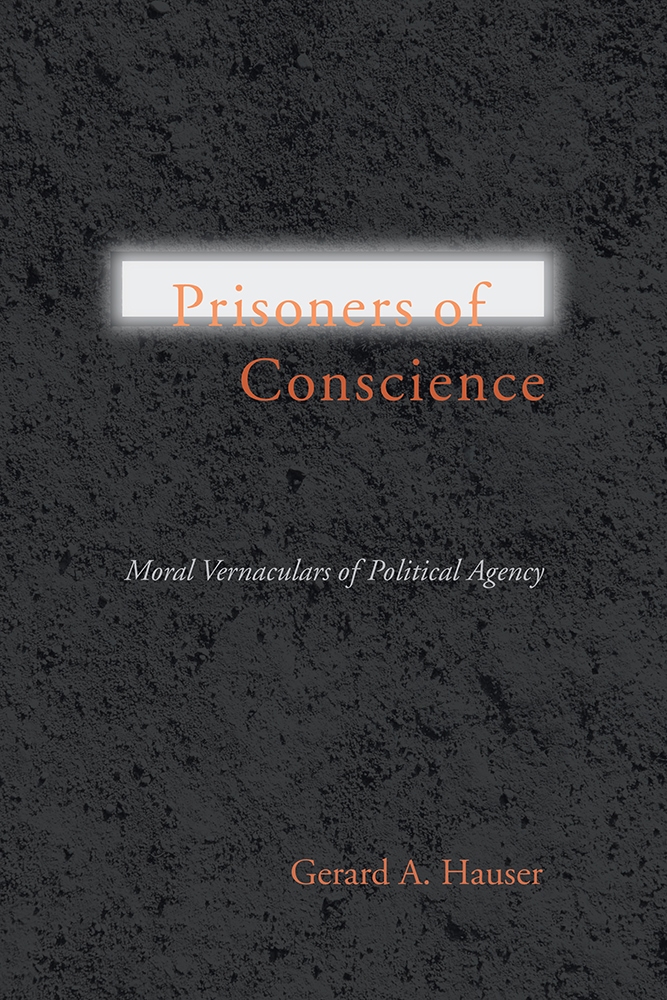Black History Month Sale: 40% off all books, plus FREE SHIPPING on all U.S. orders over $50 | Use code JBHM26

Size: 6 x 9
Pages: 306
Illustrations:
Gerard A. Hauser
The inclusion of this book in the Open Carolina collection is made possible by the generous funding of
"The prisoner of conscience has much to tell us. In the name of moving beyond the limits of traditional human rights doctrine, it behooves us to listen. In this ground-breaking and altogether important work, Gerard Hauser discovers a moral vernacular that sheds new light on the human condition and the place of human rights in public life. A call to hear the terms and power of "ordinary virtue" in the midst of evil, Hauser's book is a timely and sophisticated mediation on the possibility of human solidarity. Its challenge to think human rights as a discourse that works outside the fold of law's founding exception deserves careful consideration and will surely inform the work of scholars in rhetoric, political theory, legal studies, and international relations."—Erik Doxtader
2013 Rhetoric Society of America Book Award and the National Communication Association's
2013 James A. Winans and Herbert A. Wichelns Memorial Award for Distinguished Scholarship in Rhetoric and Public Address
Copyright 2026
Website By Morweb.org